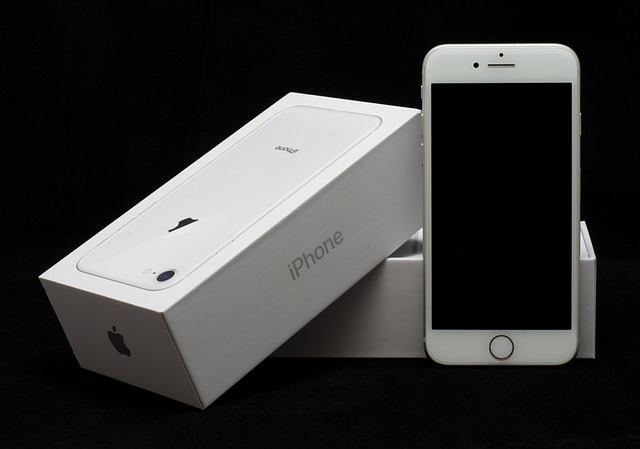Robocalls are a growing concern in South Dakota's hospitality industry, disrupting customer experiences and inviting legal repercussions. State laws protect residents from unauthorized telemarketing calls through the "Do Not Call" list and strict regulations. Businesses can safeguard themselves by hiring unwanted call lawyers in South Dakota to ensure compliance and avoid lawsuits. By combining advanced call blocking systems with legal counsel, hospitality establishments can mitigate robocall impact, enhance privacy, and maintain positive brand images. Case studies show successful strategies, inspiring others to take action against these intrusive calls.
“In today’s digital age, Pierre’s hospitality industry faces a new challenge: the rise of robocalls. These automated, unsolicited phone calls not only disrupt guest experiences but also threaten the reputation of businesses in this competitive sector. With South Dakota experiencing an increase in unwanted calls, understanding the legal perspective and available strategies becomes crucial for both businesses and their unwanted call lawyers or unwanted call attorneys. This article explores effective solutions, drawing from case studies, to combat robocalls and ensure a positive customer experience.”
Understanding Robocalls and Their Prevalence in the Hospitality Sector
Robocalls, or automated telephone calls, have become an increasingly prevalent issue in various industries, including South Dakota’s hospitality sector. These automated messages, often used for marketing purposes, can be a nuisance for business owners and guests alike. In today’s digital age, many hotels, restaurants, and tourism-related businesses rely on phone communications to engage with their customers. However, when these interactions are unwanted or spammy, it can lead to negative experiences and even legal repercussions under South Dakota law.
Unwanted call attorneys in South Dakota are seeing a rise in cases related to robocalls, as many businesses fail to obtain proper consent for automated communication. Guests who receive unsolicited calls, especially those promoting services or products, may have grounds to take legal action against the offenders. With the help of unwanted call lawyers SD, hospitality industry professionals can protect themselves and their establishments from potential lawsuits by ensuring compliance with regulations regarding telemarketing practices. By understanding their rights and obligations, business owners can navigate this complex landscape and avoid costly mistakes.
The Legal Perspective: Unwanted Call Laws in South Dakota
In South Dakota, the legal perspective on robocalls and unwanted calls is protected by state laws designed to prevent nuisance and ensure consumer privacy. These laws provide a framework for residents to combat unsolicited telephone marketing calls, commonly known as robocalls. An unwanted call lawyer in South Dakota can help individuals navigate these regulations and assert their rights against intrusive communications.
The state’s legislation offers consumers the right to register their phone numbers on the “Do Not Call” list, restricting automated calls from telemarketers. Unwanted call attorneys in SD assist clients in understanding their legal options when dealing with persistent or harassing robocalls. By employing the expertise of a local lawyer for unwanted calls, Pierre’s hospitality industry professionals can ensure compliance and protect their guests’ peace of mind, fostering a more positive and relaxed environment.
Impact on Customer Experience and Business Reputation
The prevalence of robocalls in Pierre’s hospitality industry has significantly impacted customer experiences and business reputations. These automated calls, often promoting services or selling products, are typically unwanted by recipients, leading to a decline in customer satisfaction. Many guests find them intrusive, causing frustration and potentially damaging their perception of the establishment they are associated with. With the rise of robocalls, businesses must consider how these calls affect their brand image and customer loyalty.
When a guest receives an unwanted call while staying at a hotel or dining at a restaurant, it can create a negative association. Reputable hospitality businesses risk losing customers to competitors who have not engaged in such practices. As such, hotels, restaurants, and other industry players in South Dakota should consider hiring legal counsel specializing in unwanted calls to navigate the complex landscape of consumer protection laws. Engaging a unwanted call lawyer South Dakota or an unwanted call attorney SD can help businesses protect their interests and maintain their hard-earned positive reputation in the face of these automated intrusions, ensuring they continue to deliver exceptional customer experiences.
Strategies for Hospitality Businesses to Combat Robocalls
To combat robocalls, hospitality businesses in South Dakota can implement several effective strategies. First, they should invest in robust phone systems that offer advanced call blocking and filtering features. Many modern solutions allow for specific number blocking, automatic rejection of unknown numbers, and sophisticated analytics to identify and block robocalls at the gateway level. Additionally, training staff to recognize and handle robocalls is crucial; employees can be equipped with scripts and guidelines on how to politely decline or redirect such calls, ensuring guest experiences remain positive.
Second, partnering with reputable unwanted call lawyer/unwanted call attorney/unwanted call law firm South Dakota services can provide specialized legal counsel and support. These professionals can offer advice on blocking unauthorized calls, help draft effective customer communication strategies, and even represent the business in case of legal disputes related to robocalls. Engaging with such experts empowers hospitality businesses to take proactive measures against unwanted call lawyers SD/unwanted call attorneys SD, ultimately enhancing their operational efficiency and guest satisfaction levels.
Case Studies: Success Stories of Robocall Management
In navigating the complex landscape of unwanted calls, several hospitality businesses in South Dakota have emerged with successful strategies. These case studies demonstrate that while robocalls can be a nuisance, proactive measures can mitigate their impact significantly. One prominent hotel chain in Sioux Falls, for instance, implemented an advanced call screening system that filters out automated calls, allowing their guest services team to focus on genuine inquiries. This approach not only improved customer satisfaction but also reduced the time spent dealing with robocalls.
Moreover, a local bed-and-breakfast owner in Deadwood found success by partnering with a reputable unwanted call law firm in South Dakota. The firm provided legal counsel and represented the B&B in sending cease-and-desist letters to persistent robocallers. This strategic move led to a substantial decline in automated calls, fostering a more peaceful environment for both guests and staff. These success stories offer valuable insights into effective robocall management, inspiring other hospitality businesses in SD to take proactive steps against unwanted calls.






